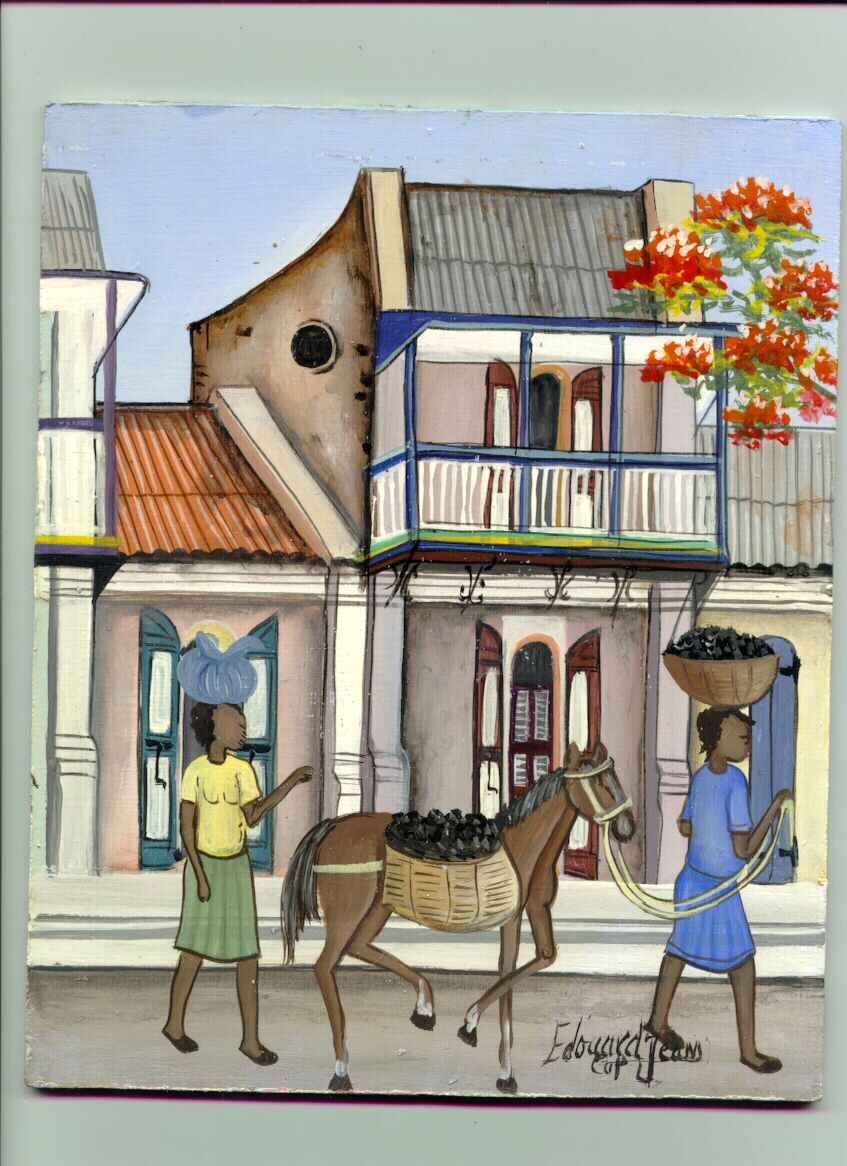
Les Charbonniers
by Edouard Jean

From Soul in a Bottle
The paysans knew that trees made rain, there were Haitian proverbs to the effect that you'd better not cut trees around your spring if you don't want your spring to go dry. All the same, when starvation threatened, the short-term solution for a great many people was to cut wood to burn charcoal and sell it in the towns.
Wherever you looked in the northern mountains you would see, somewhere in some crevice, a tightly concentrated plume of whitish smoke. The sticks (they were sticks, twigs, there were no big trunks left to burn) were gathered and tightly piled and covered with dirt and left to smolder. When the charcoal was finished it came down from the mountains donkey back. Some of the charcoal burners must have travelled all through the night in order to make their deliveries at dawn. At Chez Frantz in Gona´ves, as I sipped a morning coffee, I watched a woman bring in charcoal for the day's cooking round the portico to the back, her burro was a bit balky and she would alternately coax it with sweet words or lash it with the little stick that all such women carried. In Cap Ha´tien the charcoal sellers would drift into the town at dawn, their strings of burros moving in a weird silence through the morning mist from the sea. The charcoal sellers could not meet the astonishing Haitian standard of cleanliness, or perhaps did not wish to; the ash that covered them was the mark of their guild. The women driving the burros were caked with soot from head to toe, their turbans and skirts and the skin of the hands and faces blackly powdered.... As for the charcoal itself, it was tragic stuff, tiny, gnarly, twisted bits of wood burned black... something that might have grown to be a tree.